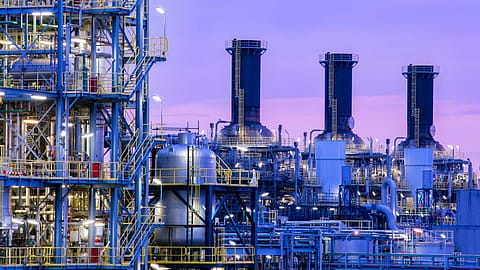Chemical sector gets relief amid US tariffs as export obligation period extended for QCO products
This measure is expected to ease financial pressures, ensure raw material availability, and enhance the global competitiveness of Indian chemical exports, offering essential support to the sector.

In a major relief to chemical exporters amid the burden of 50% US tariffs on a majority of India's exports, the government has extended the export obligation period from six to 18 months under advance authorisation for products under the mandatory quality control orders (QCOs). The move eases financial pressures from input costs, guarantee raw material availability, and fortify the competitive position of Indian chemical products.
It is also expected to provide a substantial buffer to the industry. With this, the exporters dealing with chemicals and petrochemicals across India get essential support and flexibility. The move will simplify trade processes and elevate the global market edge of Indian goods. The decision also bears significance as similar relaxations have also been given by other ministries such as textile.
"The chemical industry has warmly received a key decision by the Directorate General of Foreign Trade (DGFT) issued at the behest of Department of Chemicals and Petrochemicals (DCPC), vide Notification No. 28, dated 28.05.2025, which extends the Export Obligation period under Advance Authorisation for products falling under mandatory Quality Control Orders (QCOs) notified by the DCPC. The Export Obligation timeframe has now been extended from 6 months to 18 months, offering a substantial buffer to the industry," says the Ministry of Chemicals and Fertilisers.
Under the advance authorisation scheme, importers can also bring in duty-free raw materials for the export production without adhering to QCOs for those inputs. The ministry informs that a significant number of these authoristions cater to the chemical sector, so they are going to benefit from the relief provided by the government.
India's $220-billion chemicals industry, producing over 80,000 commercial products, is a key driver of economic growth. In 2024-25, its export contributions hit an impressive level of $46.4 billion, about 10.6% of the total export value, reinforcing its critical status.
As the world’s sixth-largest manufacturer and 14th-largest exporter, India ranks third in chemical manufacturing among Asian nations. With a century-old robust and cost-effective ecosystem, it has fostered several global players across bulk chemicals, agrochemicals, petrochemicals, polymers, and more, making it a breeding ground for billionaires.
The latest 50% tariff imposition by the U.S. on India's chemical exports could also affect the entire industry. An additional 25% tariff on Indian-origin goods announced by US President Donald Trump kicked in on August 27. The move is expected to severely disrupt the flow of Indian goods to its largest export market and around 55% of India’s US-bound shipments (worth $47-48 billion) are now exposed to pricing disadvantages of 30-35%, S C Ralhan, president, FIEO, said.